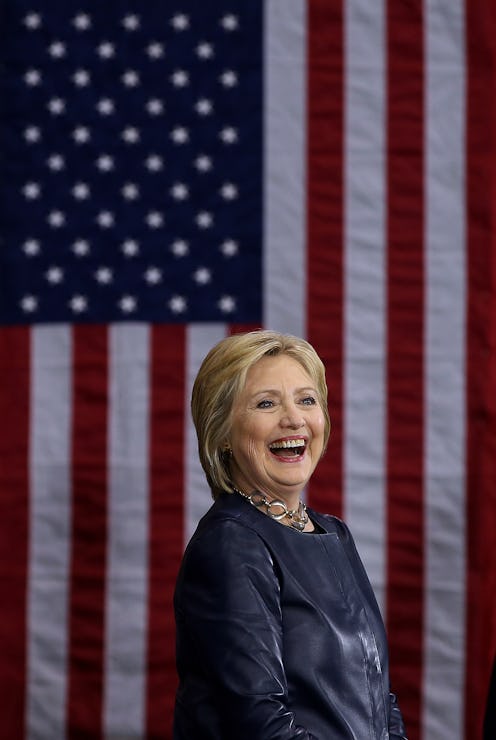News
Hillary Officially Wins Missouri (A Month Later)
It sure took a while, but the winner of the Missouri Democratic primary has finally been certified. On Tuesday, it was officially announced that Democratic frontrunner Hillary Clinton won the Missouri primary over Bernie Sanders last month, besting the Vermont senator by the narrowest of margins ― she claimed 310,602 votes in the state to his 309,071, meaning she squeaked it out by just 1,531 votes. The final outcome had been a topic of conversation for weeks, despite the fact that Sanders conceded the race in March, and suggested that a recount would be unnecessary. But now the contest has at long last drawn to a close.
That said, whether you're a Hillary supporter or a Bernie supporter, it's important not to lose sight of the real prizes in these primary races ― not states, but delegates. That's the upshot of what went down in Missouri: No matter who had actually been declared the winner, with such a razor-thin difference between the two, it was going to be a wash in the delegate tallies either way. In Missouri, both Sanders and Clinton netted 34 of the state's 68 delegates, meaning neither one of them gained or lost any ground on the other.
In other words, it's a wash, a push, a breaking even. It's worth noting, however, that we're into the stage of the campaign where breaking even actually does work to one of the candidates' direct benefit. Clinton is currently in possession of 1,305 pledged delegates, compared to Sanders' 1,086 ― in other words, she's leading by 219 with just 19 contests left to go, needing a majority of 2,383 to claim the nomination.
On its face, this might seem like a close race, and one that Clinton is at risk of falling short ― she's still slightly more than 1,000 delegates from passing that mark, and while Sanders isn't making up ground at the rate he needs to, he is undeniably jockeying for every spare delegate, denying her the ability to pivot to the general election early. But there are few routes for Sanders to make up the ground he needs to, and that's without even considering the presence of the ever-controversial superdelegates.
There are more than enough superdelegates to put Clinton over the top before the convention rolls around (500 of them, to be exact), and while they're free to support whomever they choose, they've never swung the nomination to a candidate with fewer pledged delegates before. Which means the very instant Clinton claims enough pledged delegates that the superdelegates will assuredly boost her over the top, she can effectively declare victory and start moving things along.
As it stands now, she's leading Sanders by double digits in New York, and that's a big state for both of them, with 291 delegates on the line. However, thanks to the Democratic Party awarding its delegates proportionally rather than in a winner-take-all format, even a narrow upset victory by Sanders wouldn't advance his cause as much as he'd probably like ― he's still got to secure some lopsided wins if he wants to cling to any competitive chance, with the outcome of the massive 546-delegate California primary perhaps the most essential.
In other words, this is a long way to say that yes, Hillary Clinton has now been certified the winner of the Missouri primary, and that's always a nice feather in a presidential candidate's cap ― you get the public perception of momentum and success, and you've got one extra state to work into the "all the places I've won" line in your victory speech. But it's always important to remember that the states don't truly matter for who wins the nomination; the delegates do.
